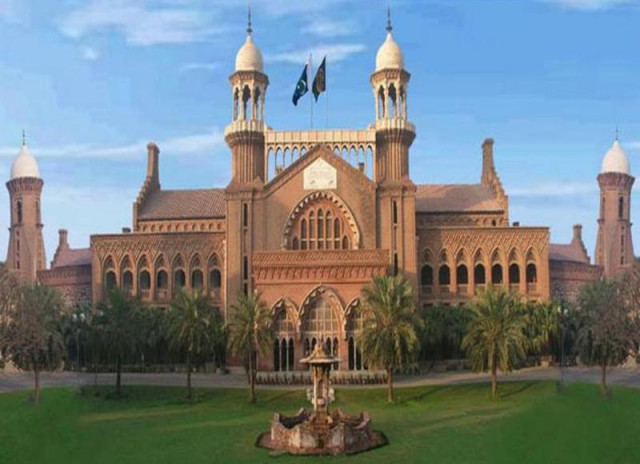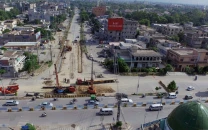Free legal assistance: Justice should be delivered on poor man’s doorstep: CJ
LHC top judge says nature is a silent party in a case related to environment

PHOTO: EXPRESS
“The recent census showed that Punjab has a population of around 110 million, and a majority of them has no easy excess to the courts,” the CJ said on Saturday while addressing inauguration of a project – launched in collaboration with the European Union – for provision of free legal assistance.
He said there will be financial problems but this project for legal assistance could be made more viable with the cooperation of federal and provincial governments. “The Punjab chief minister should earmark budget for this project so that the needy be awarded legal assistance in civil matters,” he added.
Lahore homeowners get luxury tax notices suspended
Justice Mansoor said the Pakistan Bar Council, the Punjab Bar Council and other bar associations should also contribute towards this project. “Young lawyers should also assist people and earn prayers of poor people along with earning a livelihood,” he added.
He said for the judge’s training in judicial academy some new courses had been included in general training programme relating to provision of free legal aid.
Expressing his views on legal aid and fair trial, Justice Ali Baqir Najafi said a few months back, the LHC chief justice had presented the concept of provision of free legal aid to the needy litigants. “The idea was discussed with the European Union and now we are going to implement the concept,” he added.
He said he had observed in his visit to Johannesburg the steps taken by developed countries for provision of free legal aid to the needy. He said those cases, of legal aid, would be run on a fast track and a specific mechanism would be adopted for the provision of legal aid.
LHC cancels SZH transfer to Punjab govt
District and Sessions Judge Abid Hussain Qureshi lauded the revolutionary steps taken by the chief justice for making the judicial system more viable.
‘Green courts’
Putting emphasis on the need to teach judges how to include environmental matters in their routine decisions, the CJ said the nature is a silent party in an environmental case and it must be provided justice and protection.
“The nature is the third silent party present in the court in an environmental case, seeking justice. We should dispense it justice as our future generations will not forgive us if we failed to protect our environment,” he said while addressing at another training workshop titled ‘green courts’.
“The environmental justice has now changed into climate justice. We have to teach our judges how to include environmental matters in their routine decisions,” he said, adding, “Protection of environment is our collective responsibility.”
Justice Mansoor said Pakistan was not responsible for the global warming but was affected a lot by the climate change and was the second largest country to be affected from environmental changes.
He feared that the situation could get worse due to the polluted atmosphere. He said water problem could also emerge in the coming years as Pakistan had not taken concrete steps to avoid the issue. “Violation of the environmental laws is harmful for the upcoming generations,” he added.



















COMMENTS
Comments are moderated and generally will be posted if they are on-topic and not abusive.
For more information, please see our Comments FAQ